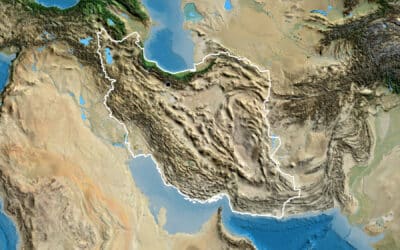Despite branding himself a political outsider, President Donald Trump’s foreign policy reflects a deep continuity with the bipartisan consensus that has defined U.S. interventionism since the Cold War.
Trump made ending America’s involvement in “endless wars” a cornerstone of his 2016 presidential campaign. On the campaign trail, he stated, “In this future, we are also going to keep our country out of the endless wars that have defined Hillary Clinton’s career.”
During his first term in office, Donald Trump repeatedly asserted that “great nations do not fight endless wars,” a phrase that became central to his foreign policy rhetoric. This declaration, first articulated in his 2019 State of the Union address, framed his approach to military engagements and resonated with voters weary of prolonged conflicts in Afghanistan and Iraq. However, Trump’s track record in his first term was a mixed bag.
To begin with, Trump shattered a significant taboo in United States–Russia relations by authorizing lethal military aid to Ukraine—a step that his predecessor, Barack Obama, had deliberately avoided. He also presided over the United States’ exit from the Open Skies Treaty and INF Treaty with Russia, while signing Countering America’s Adversaries Through Sanctions Act (CAATSA), the toughest sanctions package imposed on Russia prior to its 2022 invasion of Ukraine.
Although Trump avoided initiating large-scale ground wars, his administration expanded military operations through airpower and covert actions. The United States dropped record numbers of bombs in Afghanistan, Yemen, and Somalia during his tenure, a strategy critics dubbed “more rubble, less trouble.” In this period, drone strikes surged by 330% compared to the Obama era, with loosened rules of engagement leading to higher civilian casualties.
Trump’s hawkishness was on full display with respect to Iran. His withdrawal from the Iran nuclear deal in 2018 and assassination of General Qasem Soleimani in 2020 brought the United States to the brink of direct conflict with Tehran. Moreover, Trump did not bring the war in Afghanistan to an end; that responsibility ultimately fell to his successor, Joe Biden.
After being re-elected in 2024, there was renewed hope that Trump would put an end to the United States’ proxy war project in Ukraine. While campaigning, then-candidate Trump vowed to end the war in Ukraine within twenty-four hours. So far, that has not come to pass as negotiations between Russia and the United States drag on. Trump even stated he was “very angry” and “pissed off” with Putin during a March 31 NBC interview, reacting to the Russian leader’s dismissal of Ukrainian President Volodymyr Zelensky’s legitimacy. This marked a departure from his positive overtures to Russia at the start of his second term, with Trump warning, “If Russia and I are unable to make a deal…I am going to put secondary tariffs on all oil coming out of Russia.”
Brian Berletic, a former U.S. Marine now residing in Thailand, believes something bigger might be at play with Trump’s foreign policy agenda. The talk of foreign policy restraint vis-a-visa Russia is merely a facade. Berletic pointed out that Defense Secretary Pete Hegseth’s “division of labor” framework during his February 2025 address in Brussels will only increase tensions with Russia.
European allies would take greater responsibility for the Ukraine conflict while the United States pivots toward confronting China. The United States isn’t truly ending conflicts but merely shifting priorities. The Trump administration, like its predecessors, is primarily concerned with maintaining global primacy rather than genuine peace.
Berletic has aptly described Trump’s adherence to the establishment’s hegemonic foreign policy consensus as a “continuity of agenda.” Berletic’s “continuity of agenda” argument extends to United States-Iran relations. Trump’s ultimatum, delivered via a March 2025 letter to Supreme Leader Ayatollah Ali Khamenei, stipulates that Iran must agree within two months to:
- Terminate all uranium enrichment activities, including the closure of facilities enriching uranium to 60% purity—a level nearing weapons-grade.
- Dismantle its nuclear infrastructure, including centrifuges and research sites, under verified International Atomic Energy Agency (IAEA) inspections.
- Cease development of ballistic missiles and armed drones, which the U.S. claims could deliver nuclear warheads.
- End support for regional proxy groups (the “Axis of Resistance”), including Yemen’s Houthis and Lebanon’s Hezbollah.
Such an ultimatum follows Trump’s withdrawal from the Joint Comprehensive Plan of Action (JCPOA) during his first term, suggesting that the administration’s approach to Iran represents not a break from previous policies but a continuation of a longstanding U.S. strategy aimed at isolating and weakening Iran in the region.
Trump has been vocal about decoupling the U.S. economy from China, primarily through tariffs and other protectionist policies—an effort he continues to pursue. However, his administration is also taking steps beyond economic measures to counter China’s growing influence.
Defense Secretary Hegseth put forward a Reagan-era “peace through strength” doctrine during a March 2025 speech in Honolulu, emphasizing deterrence against China through enhanced alliances and military modernization. He declared that the United States would “stand shoulder to shoulder” with regional partners to counter “Communist Chinese aggression,” framing this as part of an “America First” strategy that prioritizes U.S. interests while maintaining coalition-based deterrence. This approach includes pressuring allies like Japan and Taiwan to increase defense spending.
On top of that, Hegseth announced plans for a “major military buildup” focused on advanced naval and anti-ship capabilities tailored to counter China’s expanding naval fleet. This includes reorganizing the Marine Corps into an anti-shipping force designed to disrupt Chinese logistics in potential conflict scenarios.
Hegseth’s anti-China zeal has continued to glow well into April. During an April 8, 2025 visit to Panama, the defense chief framed Chinese involvement in the Panama Canal as a direct threat to regional security and U.S. interests. At a ceremony for a U.S.-funded naval base dock, he asserted that “China-based companies control critical infrastructure in the canal area,” enabling surveillance activities across Panama and undermining sovereignty. Specifically, he referenced two ports operated by Hong Kong’s CK Hutchison, which were in the process of being sold to a consortium including BlackRock.
Hegseth characterized this arrangement as granting Beijing “the potential to conduct surveillance activities across Panama,” a claim the Chinese Foreign Ministry dismissed as “malicious attacks” and “misinformation.” The defense secretary framed U.S. actions as a partnership with Panama to “take back the canal from China’s influence,” echoing former President Trump’s demands for reduced transit fees and greater American control.
By any measure, the United States refuses to give up on global hegemony regardless of the changes in presidential administrations. From a cynical outlook, ostensive efforts toward peace should be understood as tactical adjustments rather than strategic shifts in Washington’s foreign policy calculus. Multipolarity has challenged U.S. political, military, and economic power, but the fundamental U.S. agenda remains consistent: maintaining primacy in a changing world order at all costs.
The continuity of the American imperium—from Bush to Obama to Trump—makes clear that elections change personalities, not policies. A genuine break from endless war and global overreach requires more than a new president; it demands a total upheaval of the current ruling class.
































